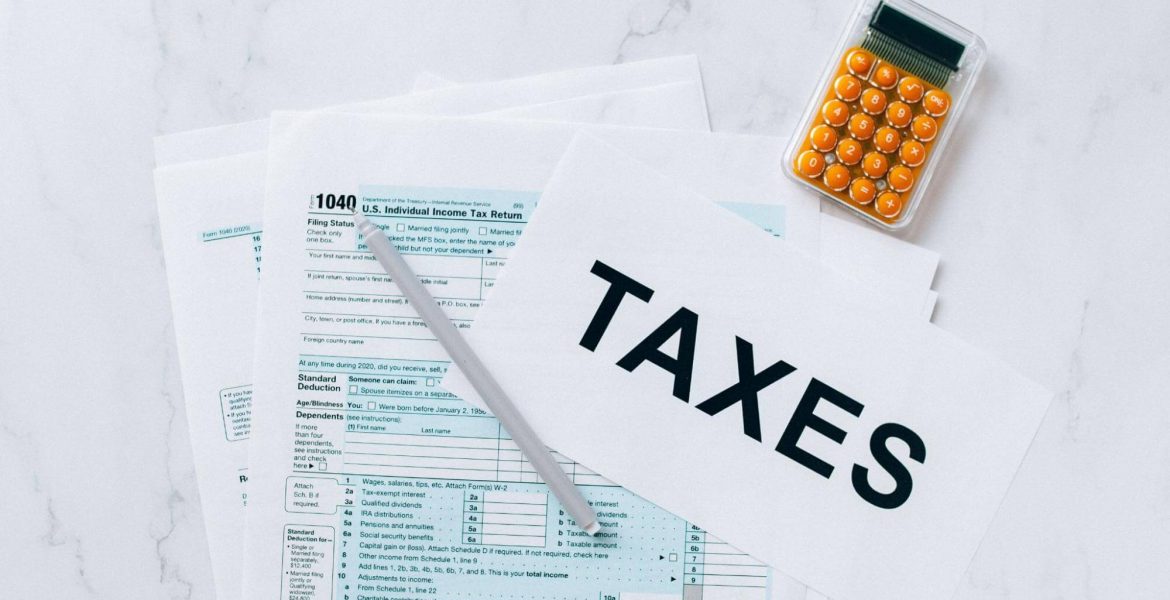One of Switzerland’s most known elements as a country is its economy. It goes without saying that taxes are one of the critical elements of any economic system. This article looks at the taxation system in Switzerland and the role that taxes play in the economy of one of the countries with the highest GDP per capita in the world. With all this in mind, one can’t help but wonder how this country’s taxation system works and how much Switzerland’s tax rate on its citizens and businesses is.
The Swiss Tax System
Being a Federation, the taxation system is not the same in every part of Switzerland. Tax rates differ depending on the canton or even municipality you live in. The difference in taxation between different parts of Switzerland is not marginal; one canton can have taxes on an aspect that another canton does not include tax.
While cantonal and municipal taxes can vary significantly, federal taxes are strictly regulated by the Swiss Federal Constitution. Cantonal and municipal taxes are also not wholly exempt from Constitutional regulations, as cantons and municipalities cannot tax something that is prohibited from being taxed by the Federal Constitution.
A similar policy is used by cantons regarding their municipalities’ rights to enforce taxes. But unlike the Federal Government and the cantons, municipalities do not have original taxing power. Still, they can only levy taxes. So a municipality can not have a specific tax that other municipalities of that particular canton do not have.
Switzerland cantonal tax
Cantons have a lot of flexibility in their original taxing power and can levy their income tax. For this reason, taxes may differ a lot from canton to canton. Like the federal income tax, the cantonal income tax has progressive rates and differs for married and unmarried individuals.
Switzerland municipal tax
Municipalities in Switzerland can also levy the taxes of their residents, similarly to the cantons. Still, they can not make their tax laws, so you can expect your taxes to be similar throughout all municipalities of a canton. Among the things that municipalities can tax that might surprise you are rental income and capital gains. Even though these two types of income are not taxable at a federal level, they become taxable at a cantonal and municipal level.
Tax allowances and exemptions in Switzerland
Workers have several tax allowances that they can claim depending on their status. A married person with children can claim allowances for all of his kids under 18 that are dependent on them.
Tax allowance can cover medical expenses, daycare (for people who have children), and charity contributions. Another tax allowance can be given to cover work expenses such as commuting and food.
Swiss Tax System for Foreigners
 Foreign workers are taxed based on their Swiss- income only, but they are subject to all three levels of taxation (Federal, cantonal, municipal) just like residents. Different tax rates are applied based on the person’s marital status, for example, married couples are taxed together. Like residents, foreign workers are subject to income, wealth, and property taxes, but foreign workers are not entitled to allowances or exemptions, unlike Swiss nationals. For foreign workers without permanent residence, income tax is imposed as a EOR payroll tax.
Foreign workers are taxed based on their Swiss- income only, but they are subject to all three levels of taxation (Federal, cantonal, municipal) just like residents. Different tax rates are applied based on the person’s marital status, for example, married couples are taxed together. Like residents, foreign workers are subject to income, wealth, and property taxes, but foreign workers are not entitled to allowances or exemptions, unlike Swiss nationals. For foreign workers without permanent residence, income tax is imposed as a EOR payroll tax.
Tax on Property and Wealth in Switzerland
Switzerland is known to be the homeland of some of the wealthiest people in the world. Besides the wealthy Swiss residents, there are a lot of rich foreigners who own assets and real estate in Switzerland and call the country a second home. For this reason, a lot of cantons in which these assets and real estate are located, choose to levy wealth and property tax. These two types of taxes are not common throughout the world. Some people argue they are unfair, but most developed countries have them.
Property tax
Property tax is a cantonal tax that some of the cantons of Switzerland impose on the residents’ real estate. The registered owners of that estate pay this tax. This tax is calculated on the taxable value of that property and is usually imposed on tourist resorts. Some of the cantons don’t levy this tax at all, but in the cantons where it is, you can expect to pay between 0.1 to 0.15% of the taxable value of your property.
Wealth tax
Switzerland’s wealth tax was first introduced during Helveticism (1789-1803). Since then, different cantons have taken various courses in how they handled wealth taxes, but nowadays, most cantons have reduced wealth tax drastically, making income tax their primary source of income.
Swiss residents’ wealth tax includes all of their worldwide assets, the canton or municipality in which the asset is located has the right to levy the tax on that asset. All cantons have a general tax allowance between 70,000 and 200,000 Swiss francs but as we said before, non-residents are not entitled to allowances.
Stamp duties
Swiss stamp duty is a tax levied by the confederation when a security is traded. This tax usually concerns people who are active in the financial markets, such as investors, stockbrokers, etc., and financial institutions such as banks. The good news for financial enthusiasts is that the new worldwide trend of cryptocurrency assets is only taxable if you are trading as self-employed or as a business. Otherwise, cryptos are exempt from taxes.
Withholding tax
Withholding tax is a tax that the employer pays to the government. This tax is paid when the team member receives his paycheck and is automatically deducted from his salary by the employer.
The Federal government imposes this tax, including income from financial investments. The rate for this tax is 35%. However, you will be refunded if you declare all your assets in your tax return.
What Kind of Taxes Are There in Switzerland?
 The types of taxes depend on the administrative levels of the country. It is up to those administrative levels to impose certain kinds of taxes.
The types of taxes depend on the administrative levels of the country. It is up to those administrative levels to impose certain kinds of taxes.
Who pays taxes in Switzerland?
Swiss nationals and permanent residents are subject to all the taxes that the Swiss government levies. You will be considered a resident if you remain for more than 30 days working in Switzerland or more than 90 days for visiting purposes. If you are visiting for medical purposes, you don’t have to pay taxes, but if you are a student enrolled in a Swiss university, you will be paying a residency tax.
Federal taxes in Switzerland
The Federal government is the supreme administrative power in the Swiss Confederate and holds the authority to levy VAT, stamp duty, withholding tax, customs duties, and special consumption tax. Also, the Federal government does the calculation of other types of taxes set by cantons or municipalities.
Income tax system
The income tax is a tax that is paid by calculating the person’s, couple’s, or family’s total income. This tax is levied by both the Federal government and the cantons, so your income tax will be calculated by combining the rate set by your government and the rate set by your canton.
For tax purposes, couples and families are taxed as a single unit, in which case unemployed members of the family and underage members will need to be declared.
How to file your income tax return in Switzerland?
Cantonal tax administrations deal with tax returns, and each taxpayer will have to submit their income tax return no later than three months after the tax year has ended. This procedure can also be done online using the Swiss government’s official website.
Self-employed income tax in Switzerland
Self-employed taxpayers are not subject to any specific taxation scheme, but their income is taxable under the general taxable income, and they must pay their pension contributions.
Inheritance tax in Switzerland
While Switzerland is known to have strict laws and regulations regarding taxes, there are, nevertheless, aspects in which the country is more lenient. Inheritance taxes are one example in this regard. Switzerland currently has no tax on inheritance if the person inheriting it is a spouse or a child. However, distant relatives can pay up to 45% of their heritage in inheritance tax.
There are also certain types of inheritance that are free from taxation, usually physical assets. Some cantons have no tax on inheritance whatsoever, regardless of who inherits them. The inheritance tax is usually calculated after the person inheriting it has received their due inheritance. The tax will depend on the value of the inheritance received. The tax value also increases if the person receiving it is a more distant relative.
Value-added tax (VAT)
Value-added tax or VAT is a fixed tax rate that governments levy on certain products and services. In Switzerland, the VAT for essential products such as food, electronics, and medical is the lowest at 2.5%, while for other services and products, the standard rate is 7.7%.
Tax at source
Tax deduction at source means that the employers or the insurance carriers directly deduct the taxes owed from the salary or the wage-loss replacement benefit (e.g., unemployment benefits, injury payments, or sick pay) and deliver them to the cantonal tax office.
This form of taxation mainly concerns foreign residents who do not hold residence permits in Switzerland.
Dog tax
If you get a pet dog, you should register it in your local municipality office, and then you will be subjected to a dog ownership tax. You must also carry a personal liability issue. The dog tax varies depending on the municipality and the breed of dog and their size.
Alcohol and tobacco tax
When traveling to Switzerland, you can carry only a certain amount of alcohol or tobacco for personal use; anything above the allowed quantities will be taxed. The tax rates depend on the type and amount of alcohol and tobacco. The taxes applied to alcohol and tobacco products produced in Switzerland will be refunded.
Gift tax
The tax on gifts varies in Switzerland. Several factors affect it, with the two main ones being the canton and the value of the present. Depending on the gift and canton, the tax on gifts can be as low as 2% or as high as 36%. There are also cantons with no tax on gifts, such as the canton of Schwyz.
Company taxes in Switzerland
One of the most important sources of income for the Swiss Government is the Corporate Tax: the tax that the government collects from companies. This tax is based on a company’s net income, and it usually stands at just under 15%, depending on the amount of income earned.
How to Calculate Your Taxes?
Several key factors come to play when calculating taxes in Switzerland. The amount of your federal, cantonal and communal taxes will usually be calculated by the government. This includes your city of residence and your income. Nevertheless, worrying about getting your taxes right is not as much of a headache in Switzerland as it can be in the United States.
One of the best ways to calculate your taxes is to use the online calculator offered by the Swiss Government on their official website. You can find the calculator here.
Seek professional tax advice
 While most tax laws and regulations are very tightly organized and established in Switzerland, there are ways in which an individual or organization can customize their finances to avoid higher taxes while always remaining compliant with relevant laws and regulations. This is usually done via the help of a professional who is an expert on taxes. When choosing an expert, the main thing to consider is their qualifications and credibility.
While most tax laws and regulations are very tightly organized and established in Switzerland, there are ways in which an individual or organization can customize their finances to avoid higher taxes while always remaining compliant with relevant laws and regulations. This is usually done via the help of a professional who is an expert on taxes. When choosing an expert, the main thing to consider is their qualifications and credibility.
Taxes are an essential aspect of Swiss institutional organization. Usually, the Swiss Government tries to do as much as possible to not leave a margin for error and has a very well-regulated tax system. Thus, paying your taxes is a fairly straightforward process and always the smart thing to do in Switzerland. The Swiss government is historically known for its wise budget spending, so you do not have to worry about your money being spent by amateurs or people with malicious intent.


